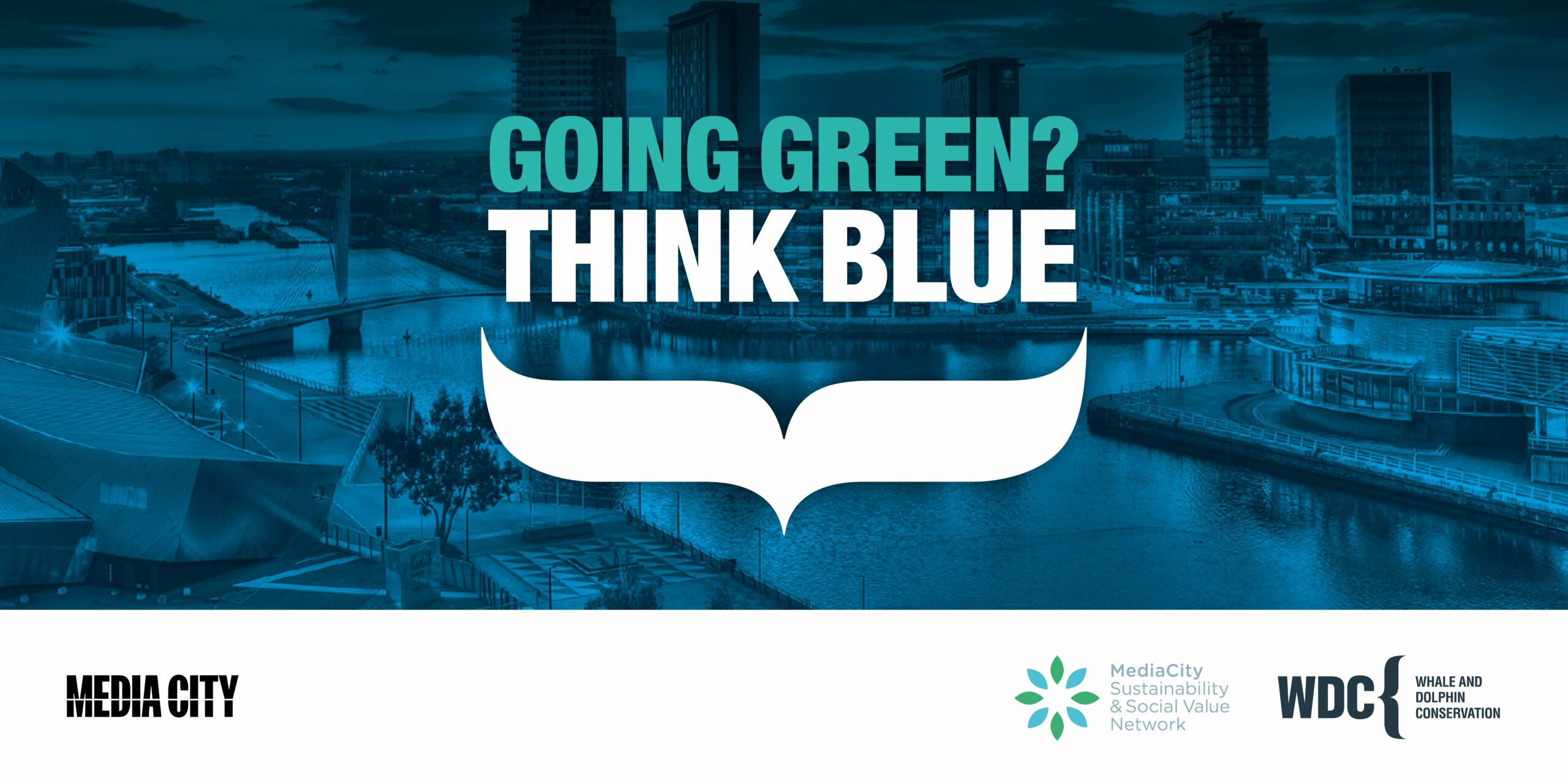Going Green? Think Blue!
We love championing green and sustainable causes – that’s why we pride ourselves with working with ethical clients that do good and are up for a challenge! But we’d be the first to admit that there is always more to sustainability than first meets the eye; the learning just never stops. We’re always open to new ideas on how we can help the planet, and we were fortunate enough to attend the “Going Green: Think Blue!” event hosted by the ARRIVE community in MediaCityUK where we were joined by a very exciting guest, Chris Butler-Stroud, the Chief Executive at the Whale and Dolphin Conservation. We certainly learnt a lot about these amazing creatures!
What’s so special about whales and dolphins?
As humans, we often have a bad habit of thinking we’re the smartest species out there – sometimes even forgetting other species have been adapting to live on Earth for much longer than we have! Whales and dolphins however aren’t just special because of how long they’ve been around for, they’re remarkably intelligent and capable of creating social bonds amongst one another. They communicate with their pods and give each other names, and they care for the health and wellbeing of each other; they feel joy just as much as pain. To top it all off, they are mesmerising, and if you’re ever lucky enough to see one (in the wild!) you’re in for a treat.
For those reasons alone these amazing animals deserve protection. But, as we discovered thanks to Chris at the Whales and Dolphin Conservation, they have been, and are still, working really really hard to keep our planet alive and healthy. Having been around for so long, they play a hugely important role in balancing out ecosystems. In fact, some animals rely solely on whale carcasses for their survival. Sadly, with some whale populations having declined by 99%, it’s unsurprising to hear that the oceans are in peril. The death of a whale impacts more than just its pod: it can leave kilometres of ocean barren with no living organisms. These “dead zones” are often high in carbon dioxide making it even harder for biodiversity to re-establish itself.
Being so integral to ecological systems, whales are climate change heroes. They often travel huge distances, bringing and leaving nutrients with them… through their poos. As strange as it sounds, it acts as a vital fertiliser for many phytoplankton, which in turn convert carbon dioxide to oxygen in dramatic numbers. They can effectively achieve something we humans try to achieve with so much difficulty simply by living their day to day lives!
What can I do as an individual to support the protection of whales and dolphins?
As we learnt from Chris, very little philanthropic funding goes towards protecting the oceans. Perhaps, this might be because for many, the seas and oceans feel so distant and it can be hard to imagine how we can even begin to make a difference. As an individual, it’s important to spread the word about the wonders of the sea so more and more people know and care about protecting our oceans.
Yet much of what applies to supporting terrestrial ecology can be applied to the oceans. Most importantly, it’s super important to keep everywhere litter-free, no matter how far away you think you are from the sea! Plastic breaks down into tiny particles which end up in our waterways, and ultimately in the bodies of whales and dolphins. We are only just beginning to understand the impact of plastic on human health; we can only imagine what it’s doing to these animals.
Concluding thoughts…
We would like to thank the Whale and Dolphin Conservation for their wonderful work and speech. Other tips to support these amazing creatures include supporting the release of captive whales and dolphins, and only taking part in sustainable whale and dolphin watching. It’s their homes after all! If you’d like to discover more, check out the Whale and Dolphin Conservation website.
